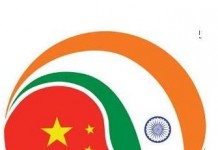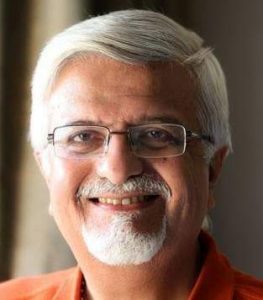By J Mulraj
Feb 28 – Mar 6, 2021
Not argumentative, be an augmentative Indian!
Democracy is wonderful, if the polity is sensible and not, alas as it is, needlessly argumentative. Our polity kept India’s economy chained until a crisis in 1991 gave then PM Narasimha Rao the political gumption to allow his Finance Minister, Manmohan Singh, to usher in winds of economic reform. This was a decade after China, under Deng Xioping, ushered in its economic reforms. China’s leader was unconcerned about any argumentative Chinese.
This 10 year lead is what has allowed China to race ahead. Its GDP, once equal to India’s is now more than 5 times larger. This gives China enormous resources to spend, to develop its military and technological capabilities. Its defence budget has increased 6.8% and it now spends more than 3 times what India spends and its military clout enables it to threaten so many countries.
In manufacture too, China has built up dominant share in global capacity of things like steel, cement, rare earths and other things, and has used surplus capacity, as well as its surplus funds, to launch its Belt & Road Initiative. BRI has enabled it, for example, to have a ‘string of pearls’, or military ports, surrounding India, in Myanmar, Bangladesh, Sri Lanka, Pakistan etc.
But it is technology that will determine our future and China has made progress in technologies for the 4th Industrial Revolution.
Take for example the technology behind protein folding. Google’s company, Deep Mind, has created a model that translates the amino acid chain (the building blocks of life) into three dimensional protein structures. It allows the company to ‘fold proteins’ thus help create drugs and revolutionise medicine. In an event, Deep Mind’s model, Alpha Fold, took 30 minutes to provide a structure of a bacterial protein. A German Institute had been working on this for over a decade. Other companies working on protein folding are Microsoft and Chinese Tencent.
At Ladakh, the Indian advantage was that its troops were climatically better acclimatized, and were experienced in mountain warfare, and hardier. China has developed an exoskeleton, which enables their troops to carry larger loads. It has also done biological testing to provide its soldiers with enhanced capabilities, including withstanding of extreme cold. So it has used technology to nullify a disadvantage.
Or take agriculture, a sector which supports over 52% of India’s population but earns only 14% of national income. A huge part of our farmland is dependent on rain, and, when crops fail, indebted farmers commit suicide. China, too, has developed agriculture, to feed its larger population. In fact 8 years ago, when it created 55 billion tonnes of artificial rain.
The argumentative polity in India is protesting (not debating, as it should, which provisions in the new farm laws are objectionable, and why), three new laws introduced by the Government which, strangely, were mooted by the opposition when it was in power! We should, instead, spend our time, effort and resources into technologies like artificial rain, precision farming, vertical farming, use of satellite imagery and others.
Can our polity stop being mindlessly argumentative and contribute proactively instead?
India is welcoming FDI and is harping on its improved Ease of Doing Business ranking. Yet the Government of Haryana, home to a lot of global IT companies in places like Gurgaon, has just passed a law reserving 75% of jobs paying under Rs 25,000 a month for locals. This is unlikely to enamour companies looking at foreign direct investment into India.
Last week the sensex rose 315 points to end at 50,405.
The main concerns now are rising prices of crude oil, and the myopia of our polity.
Brent crude price has hit $ 67/b. And rising. Thanks to Biden’s reversal of Trumpian policies, Government lands are not being leased for fracking, something that had changed the US from a net importer to a net exporter of oil/gas. It has now reverted to being a net importer. China’s economy has bounced back and is creating a huge demand for crude, and of commodities. India imports over 80% of its requirement of crude oil. Companies like ONGC and Oil India were producing domestically. ONGC has been financially enfeebled by a forced purchase of HPCL, depriving it of its ability to undertake capex. A short sighted policy of GOI, only meant to raise resources (by transferring money from one of its pockets to another)>
In telecom, the Government is also raising resources through sale of spectrum. Thanks to a court judgement following the 2G spectrum scam, such sales are via auctions, selling spectrum to the highest bidder. GOI raised Rs 72,000 crores selling spectrum, mainly to Jio. But the cost paid for spectrum, would mean reduced ability for other infrastructure spending. Incidence of call drops have risen. Call rates may rise, or perhaps there may be further stress on bank loans taken to acquire the spectrum.
Ultimately, our polity would need to learn to work together for the future of the country, and focus on the future, rather than dwell on the past.
Rather than being an argumentative Indian, be an augmentative Indian!
Picture source: www.businessfacilities.com









































COMMENTS